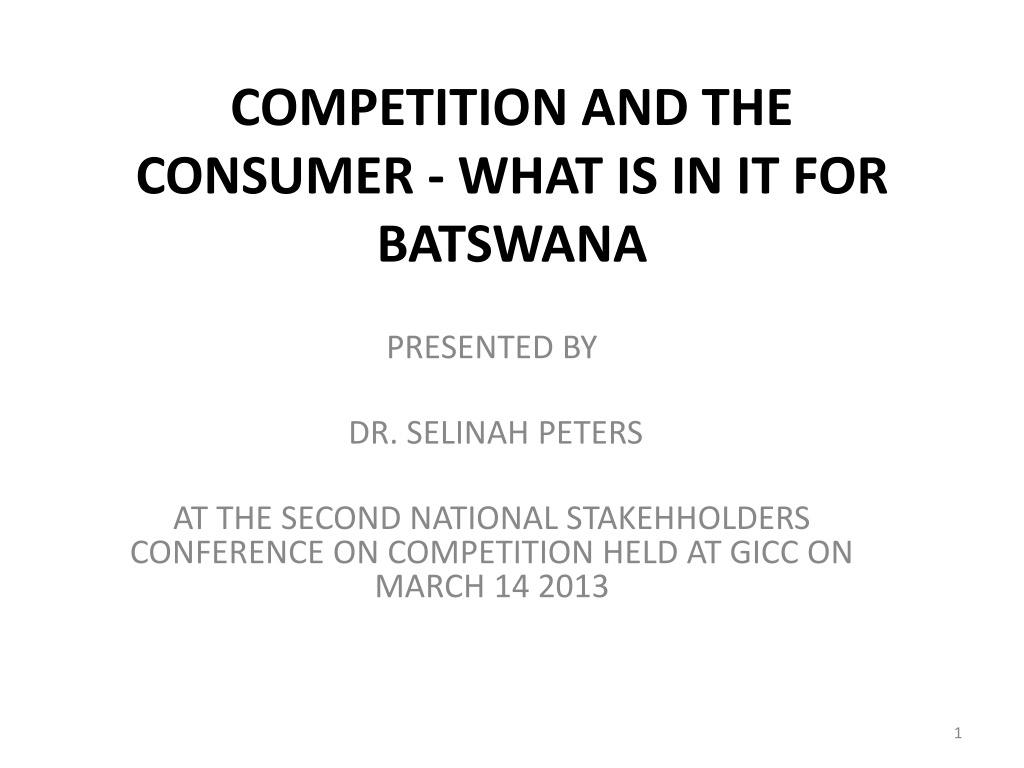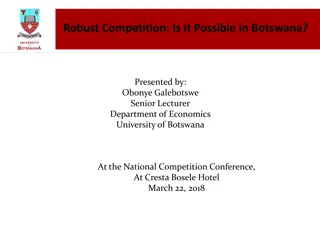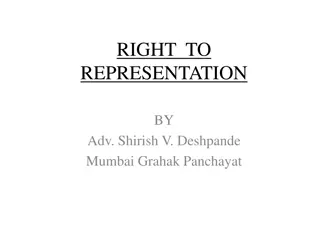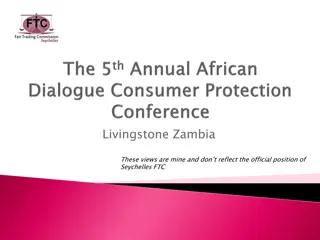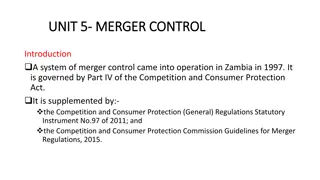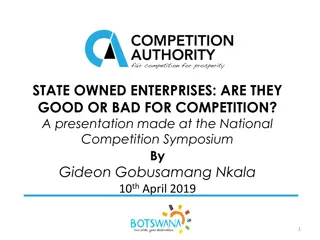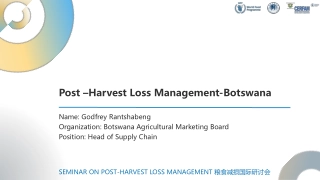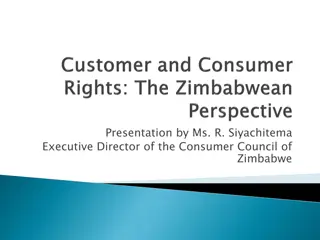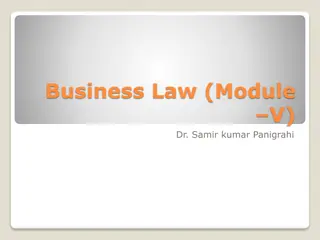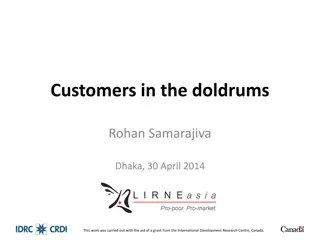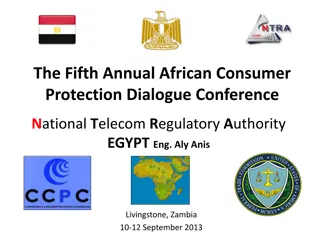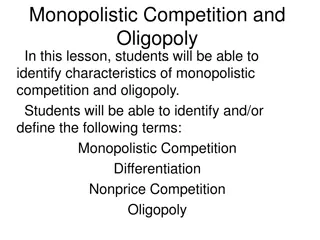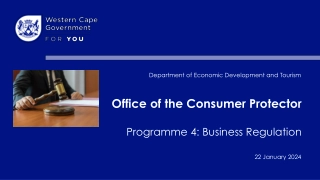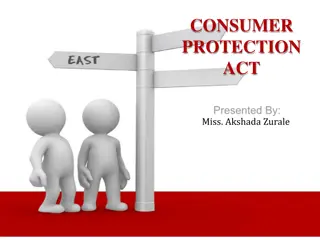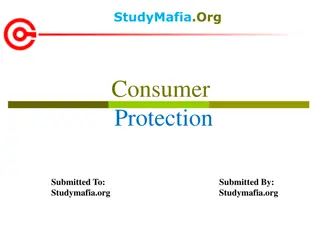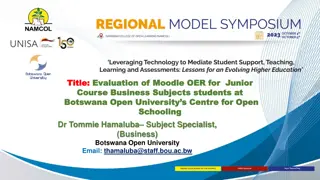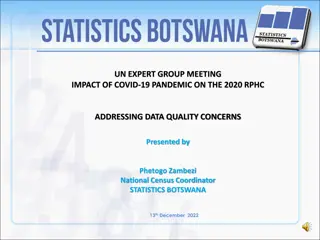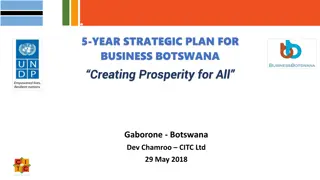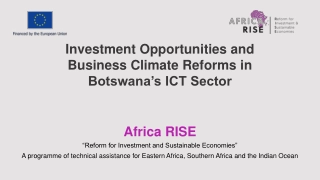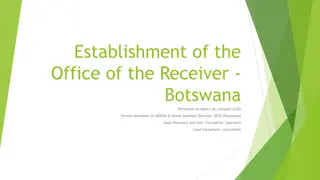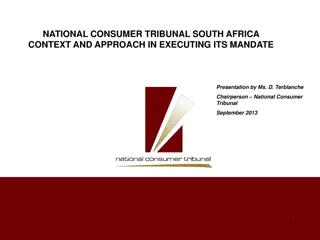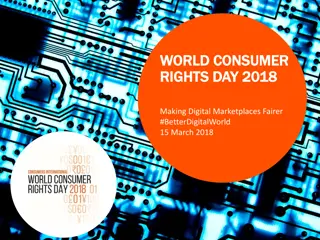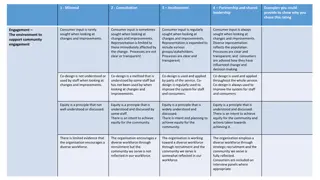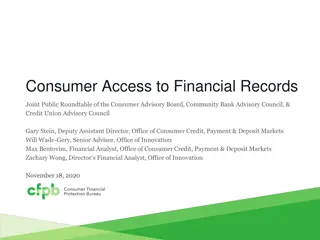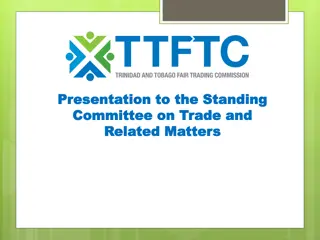Competition and Consumer Rights in Botswana
Dr. Selinah Peters presented on the importance of competition for consumers in Botswana at the Second National Stakeholders Conference on Competition. The Botswana Consumer Coalition advocates for consumer rights, expecting fair competition to enhance consumer well-being and economic growth. However, anticompetitive practices threaten consumer rights by limiting choices and quality while driving out small businesses. Consumers deserve protection against such practices and access to accurate information for informed decisions.
Download Presentation

Please find below an Image/Link to download the presentation.
The content on the website is provided AS IS for your information and personal use only. It may not be sold, licensed, or shared on other websites without obtaining consent from the author. Download presentation by click this link. If you encounter any issues during the download, it is possible that the publisher has removed the file from their server.
E N D
Presentation Transcript
COMPETITION AND THE CONSUMER - WHAT IS IN IT FOR BATSWANA PRESENTED BY DR. SELINAH PETERS AT THE SECOND NATIONAL STAKEHHOLDERS CONFERENCE ON COMPETITION HELD AT GICC ON MARCH 14 2013 1
Introduction Who is BCCARO? It is the mother body for consumer groups within the country. Its mission is to represent consumers in all spheres of economic and social activities It seeks to enhance the wellbeing of consumers by advocating, educating, protecting and promoting their interests in the marketplace. 2
Consumers Expectations for Competition as a Consumer Protection Measure If well managed and regulated competition could enhance consumers wellbeing and support economic growth and diversification of the economy. - Markets offering a variety of quality goods and services at reasonable prices - Safeguard consumers against an exploitation and anticompetitive practices in the marketplace. - The competition and consumer protection act are meant to complement each other in protecting the interests of consumers Unfortunately, unlike other malpractices in the marketplace, anticompetitive practices are complex and not easy to be noticed by consumers or to quantify This challenges the competition Authority to take serious action to protect consumers against anticompetitive practices 3
Violation of Consumer Rights by Anticompetitive Practices Consumers have the right to select from a range of products and services offered at competitive prices with an assurance of satisfactory quality. Anti-competitive practices violet the consumer right to choose: But is this what is happening? We know that we are faced with many Asian shops selling poor quality goods nicknamed disposables. Such products impoverish consumers because they keep on buying and throwing them instead of saving money and buy quality goods from other shops When these shops started, their products were selling at reasonable prices but we now see the same poor quality goods selling at increased prices. There is also not much choice because the products sold in these shops are the same in most of the these shops. We also see these shops having driven small and medium entrepreneurs out of businesses and now dominating the retailing market in most of the towns and villages. 4
Violation of Consumer Rights by Anticompetitive Practices Cont. The right to information: To be given the facts needed to make an informed and wise choice and to be protected against dishonest or misleading advertisement and labelling. 5
ANTICOMPETITIVE PRACTICES Trade liberalisation and rapid changes in the marketplace has lead to anticompetitive practices and the increasing complicity of sales tactics instead of bringing fair competition. Anticompetitive practices that affect consumers include: 6
ANTICOMPETITIVE PRACTICES CONT. Price fixing e. g. in retailing we have a situation where one of the big or chain stores buy the small or medium businesses and this leads to: - Market domination by unfairly swallowing or driving other businesses out of the market - No product variation - Price fixing because it is the same shop with different outlets in the same location. 7
ANTICOMPETITIVE PRACTICES CONT. Monopoly e. g. Utilities Cooperation - High electricity and water charges due to estimation of prices - Power and water disconnection without giving notice to consumers. This violates our right to information. We have the right to be notified that electricity will be cut indicating day and time and the reasons. When you go to pay for water, you are told that the bill is not yet out and the next month you go you are told the same story and after 3 months or so you receive an enormous bill followed by disconnection. That is punishing the consumer for their own mistakes which is not fair to consumers at all. This happens because consumers because there are no competing businesses in this industry 8
ANTICOMPETITIVE PRACTICES CONT. Mergers and acquisition Merging and acquisition stifles competition by blocking new entrepreneurs to get into business and drive away the existing ones E. g. merging companies selling complementary products i. e. one producing chickens and the other producing chicken feed. They eventually become a monopoly by starting by low prices to beat other existing business. 9
Results of the Economic Mapping Survey Anticompetitive practices exist and affect consumers in Botswana. This was justified by the Economic Mapping Study, specifically the survey done to determine the existence of anticompetitive practices. Revealed that 68.8% of the respondents said its existence was moderate, 20.8% said its existence was significant and 8.3% said it was huge. Price fixing and unfair trade practices were found to be the key concerns at both local and national levels. Bid rigging was found to be prevalent only at national level. Source: Competition Scenario in Botswana. ( June, 2006). Botswana Institute for Development Policy Analysis
Extent to which consumers are affected by Anticompetitive Practices Extent of impact Insignificantly Moderately Significantly Hugely Non response Total Number 2 16 22 5 3 48 Percent 4.2 33.3 45.8 10.4 6.3 100 11
CONTNUATION OF THE SURVEY About half of the respondents (45.8%) said that consumers were significantly affected by anticompetitive practices, 33.3% said they were moderately affected and 10.4% said they were hugely affected. The most prevalent anticompetitive practices were price fixing and exclusive dealing identified by 39.6% of the respondents for each case and predatory pricing (22.9%). 12
Conclusion Anticompetitive practices have significant negative impacts to both consumers and on developing economies and therefore competition laws need to be strictly enforced to protect and safeguard the interests of consumers and for efficiency. 13
